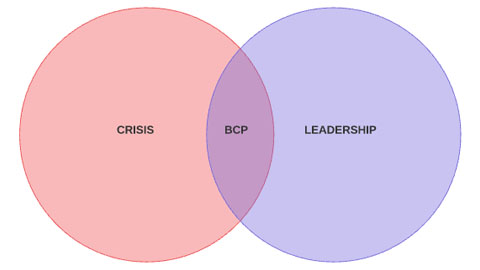Technology is an inseparable unit of progress — it’s both the trigger for innovation and the propellant of evolution. Considering these two critical roles, technology helps businesses improve and automate operations, giving humans more time to perform high-level and creative tasks.
But as more organizations rely on technology, technology itself has become the key to business continuity.
Basics First: What Is Business Continuity?
You need to have a set of plans and procedures designed for Business Continuity if an emergency happens. Business continuity planning helps companies navigate crises effectively, with minimum losses.
Accordingly, well-structured business continuity plans (BCP) ensure operational stability and outline steps for an organized and steady recovery.
Furthermore, a BCP gives board members and senior leadership actionable steps how to:
- Minimize financial losses
- Mitigate operational disruption
- Serve stakeholders
- Plan recovery
- Maintain operations under different crisis scenarios
- Outline short- and long-term strategic steps
A BCP usually consists of:
- Risk management plan
- Business impact analysis
- Recovery plan
- Plan management
Read our white paper to learn how to develop every element of the business continuity plan.
Since technology is engrained in the DNA of almost every company and organization, regardless of its size, technology makes business continuity much more relevant.
How Technology Can Improve Business Continuity
As technology grows more sophisticated, its capability to strengthen business continuity planning grows exponentially. Technology can help businesses in their BCP efforts by:
- Improving information flow
- Enhancing data security
- Enabling remote work capabilities
- Generating channel for critical insight and analysis regarding company health
That said, when building your business continuity plan, consider implementing tools that facilitate communication, notification, document handling, and data recovery.
Improving Information Flow
The first building block of every successful business continuity plan is a seamless information flow. Employees at the front lines of business operations need to report to top management about any disruptions or emergencies that affect day-to-day activities.
Similarly, any recommendations from the top to the front lines need to be communicated quickly and efficiently, with little room for delays or miscommunication.
Only a well-structured and orchestrated communication plan lets board members gain the necessary insight into the health and current status of the company and its employees.
This insight is critical to developing information-based decisions that help the board ensure the continuation of business operations regardless of circumstances.
Technology helps maintain seamless information flow by providing employees and management with the tools to assign and resolve action items.
Reliable communication and collaboration tools such as a board portal can serve as an excellent mission control platform. With a history of steps taken, recommendations made, and incident reports, a board portal is an actionable tool that gives board members and the top management greater control during crises.
With everything written down, instructions create clarity and become highly available — the risk of information getting lost in the sea of post-it notes is reduced.
Enhancing Data Security
Data and information are the most significant assets of all modern companies. Mishandling of data can lead to litigation and severe financial consequences. On the other hand, the lack of data and information can disrupt one of the fundamental roles of the board — proper oversight.
Paper-based archives and document storage can lead to data loss, on top of increasing annual operational costs for maintaining printing equipment and physical storage.
Technology solutions help companies encrypt their data and store it in a secure and protected environment. A good example is the government-approved cloud solutions provided by AWS Amazon.
When critical data is stored in one place and not scattered all over the internal network, tracking and securing data assets is easier and more effective. With multi-factor authentication, data backups, and encryption, the risk of a successful hacker attack is kept to a minimum.
Enabling Remote Working Capability
When a crisis like the Coronavirus pandemic erupts, providing employees with remote working tools is critical to maintain operations and ensure the safety of your workforce.
Thus, technology solutions (hardware and well-configured software) deployment ensure a seamless transition to a remote-only model. That’s why remote work policies and procedures should be ingrained in every business continuity plan.
Remote working technology should let employees collaborate and communicate effectively in a secure and productivity-boosting manner.
But remember, security workshops and training should support every use of technology to make employees vigilant and aware of any threats.
Generating a Hub for Critical Insight and Analysis
Modern analytics solutions allow you to turn raw data taken from all business areas and develop actionable insight. You create better business decisions using data-based analytics.
Thus, data-backed reports are necessary to convince shareholders to endorse the implementation of important decisions.
That’s why in recent years, analytics technology has become an integral part of most businesses. With unstable financial situations, diagnostic analytics can help accountants and financial officers pinpoint drivers for growth and optimization. Paired with predictive analytics, diagnostic analytics supports strategic decision-making even during strenuous times.
Technology is Key for Business Continuity
Technology gives boards additional leverage during crises by improving information flow, data security, and data analytics. Solutions such as board portals help companies remain operational and collaborate on crucial corporate documentation.
Jielynne is a Content Marketing Writer at Convene. With over six years of professional writing experience, she has worked with several SEO and digital marketing agencies, both local and international. She strives in crafting clear marketing copies and creative content for various platforms of Convene, such as the website and social media. Jielynne displays a decided lack of knowledge about football and calculus, but proudly aces in literary arts and corporate governance.










